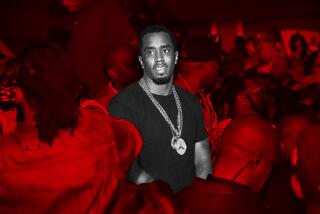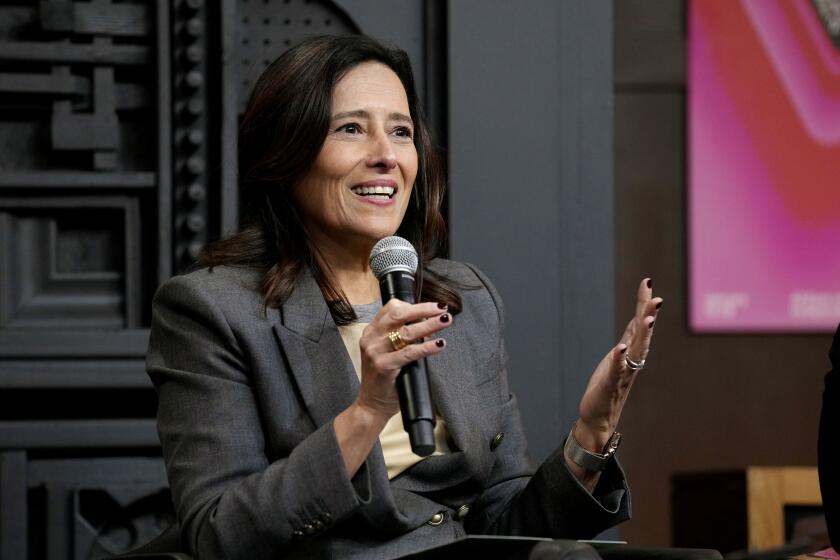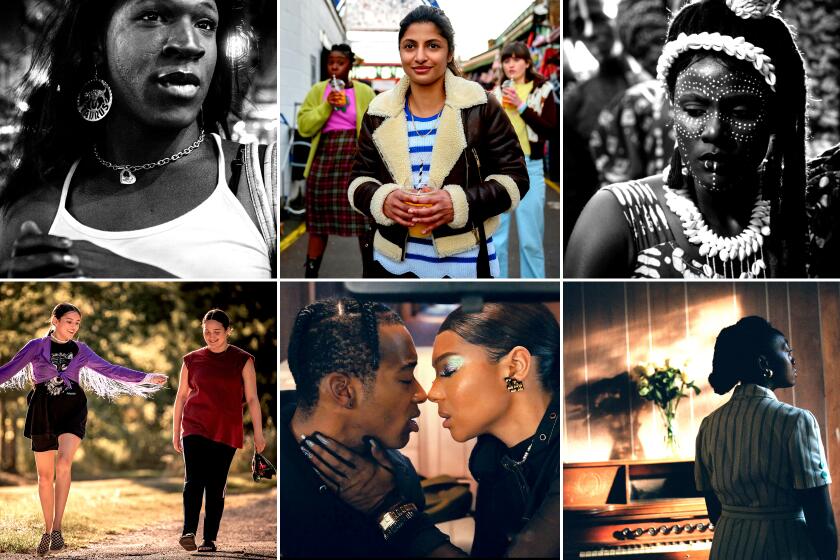A new Bill Cosby docuseries nearly drove its director to quit. The struggle paid off
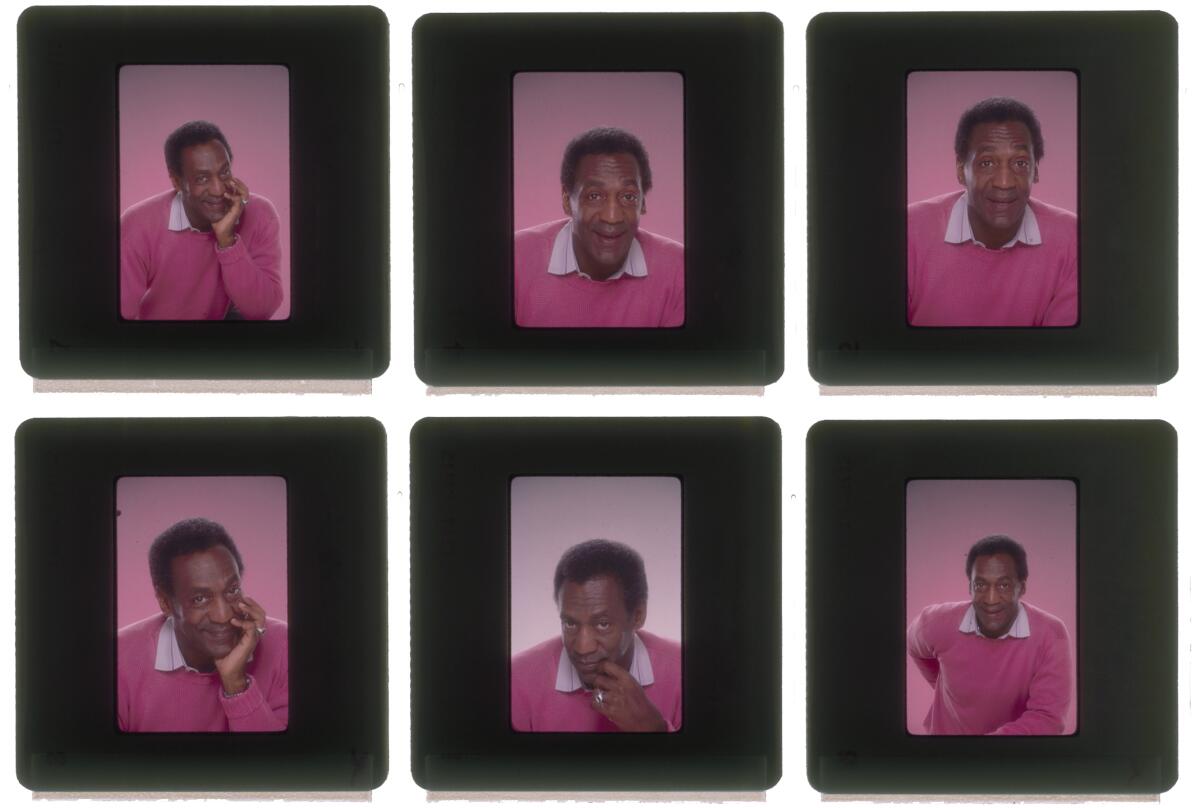
- Share via
Director W. Kamau Bell kicks off his four-part Showtime docuseries, “We Need to Talk About Cosby,” with a question that makes everyone uncomfortable: Who is Bill Cosby?
His interview subjects curse under their breath and squirm in their seats as they attempt to formulate responses: A monster. America’s dad. An alleged rapist. Someone to believe in, someone to trust. An intelligent, malignant narcissist. A tragedy.
In the compelling new series, which premieres Saturday at the Sundance Film Festival and Jan. 30 on Showtime, comedian and host Bell wrestles with our dueling images of Cosby the Black pioneer and cultural icon and Cosby the alleged serial sexual predator. Can and should we separate the man from his art? What is his effect on generations of Black Americans? And can we honor pieces of his shattered legacy while still recognizing the damage he wrought? Nothing is tied up in a neat bow, and that’s largely what’s so engrossing about this series. It struggles, like the rest of us, with where to put Cosby.
Even before ‘Allen v. Farrow’ premiered, Allen supporters came out against it. Their reaction says less about HBO’s series than a changing culture.
“This is hard,” admits Bell. “There are times when making this I wanted to quit. I wanted to hold on to my memories of Bill Cosby before I knew about Bill Cosby.”
Bell narrates the series off-camera, explaining that he felt compelled to make “We Need to Talk About Cosby” as a 1970s kid who felt a connection to the actor through “Fat Albert,” “Picture Pages” and, later, “The Cosby Show.” Black academics, journalists, comedians and “Cosby Show” cast members are among those interviewed here, as well as numerous women who’ve accused Cosby of sexual assault dating back as early as the 1960s. Archival news footage and clips from Cosby’s various shows, films and TV interviews are used to illustrate the chasm between the lovable, upstanding dad onscreen and the alleged abuser of more than 60 women.
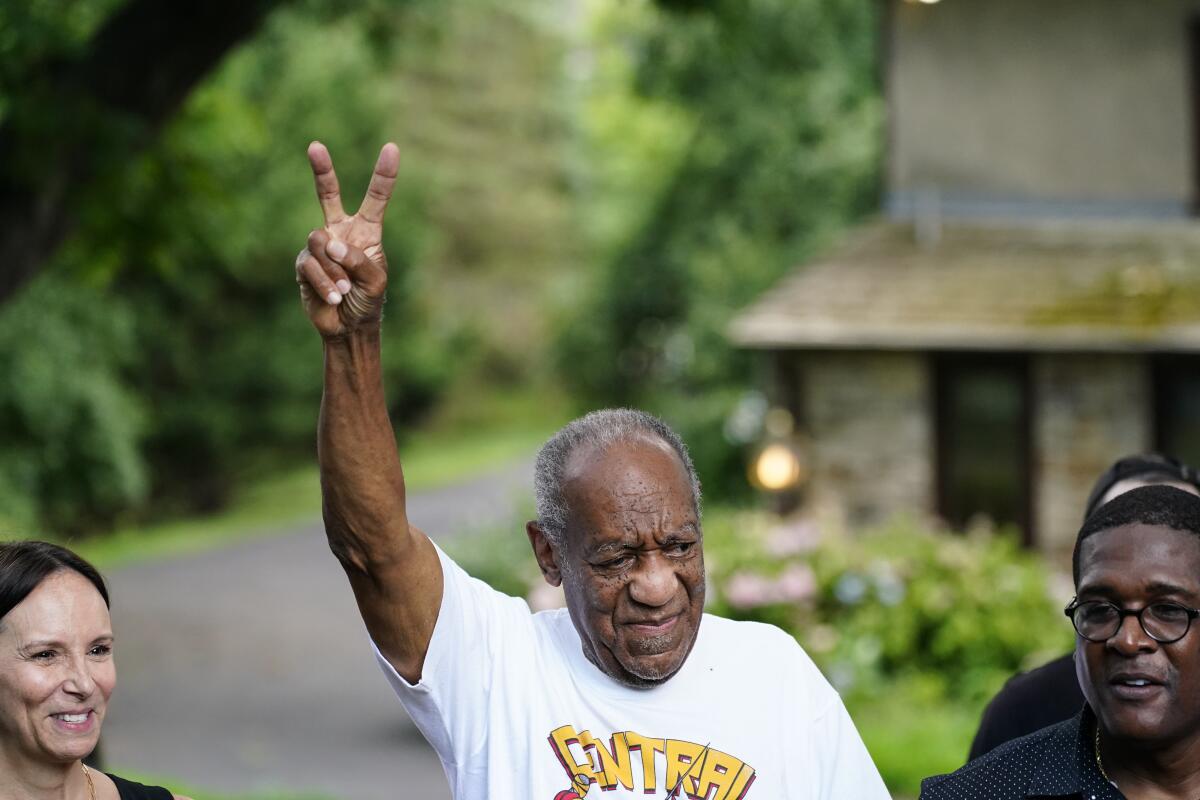
Each hourlong episode is loosely structured so the first half chronicles Cosby’s successes: becoming the first Black lead in a TV series with “I Spy” in 1965; pioneering the hiring of Black stuntmen (as opposed to white men in blackface); diversifying Saturday morning cartoons; countering the stereotype of the broken African American family with “The Cosby Show.”
“We loved him for such a long time before we heard about allegations, they felt new,” says Bell, but they weren’t. The remainder of each episode chronicles what was happening behind the endearing Jell-O pudding commercials and smiling talk show appearances. Former Playboy bunny and playmate Victoria Valentino recalls being drugged by Cosby in the late 1960s at a Sunset Strip restaurant, shuttled to a town house in the Hollywood Hills, then raped by the star. Former model Lise-Lotte Lublin details a similar story, decades later. The sheer number of allegations amassed here is overwhelming — from a Harrah’s casino cocktail waitress, a member of the tennis club, a young adjunct professor — and the similarities between the accounts are sickening. (Cosby has consistently denied all allegations of sexual assault: “I have never changed my stance nor my story,” he said in a statement last year. “I have always maintained my innocence.”)
Michael Jackson’s been gone since 2009, but when “Leaving Neverland” arrives Sunday on HBO, it does so amid a new, or perhaps rekindled, controversy regarding the King of Pop.
The series also looks back at Cosby’s body of work for hints about his offscreen behavior. For 20 years he told jokes on comedy albums, in books and on TV about drugging women with the aphrodisiac Spanish fly. (The now-infamous Larry King clip about it is still painful to watch.) Then there’s Cliff Huxtable’s vocation in “The Cosby Show”: He’s not just a doctor, he’s an OB-GYN, operating out of the basement of his home. Former Ebony editor-in-chief Kierna Mayo says Cosby was “leaving breadcrumbs all throughout his career pointing to his guilty conscience.”
There is a notable lack of film and TV luminaries in the series, and Bell explains there were many who just weren’t willing to talk. Several “Cosby Show” alumni do appear, including writer Matt Williams. Lili Bernard and Eden Tirl had bit parts on the show after being hand-picked by Cosby. They describe being drugged and assaulted backstage. Comments from journalist Jemele Hill, television host Roland Martin, Boston Globe editor Renée Graham, comedians Godfrey and Chris Spencer, academic Jelani Cobb and dozens more build out the case that there is not one correct way to think about Cosby. It’s complicated.
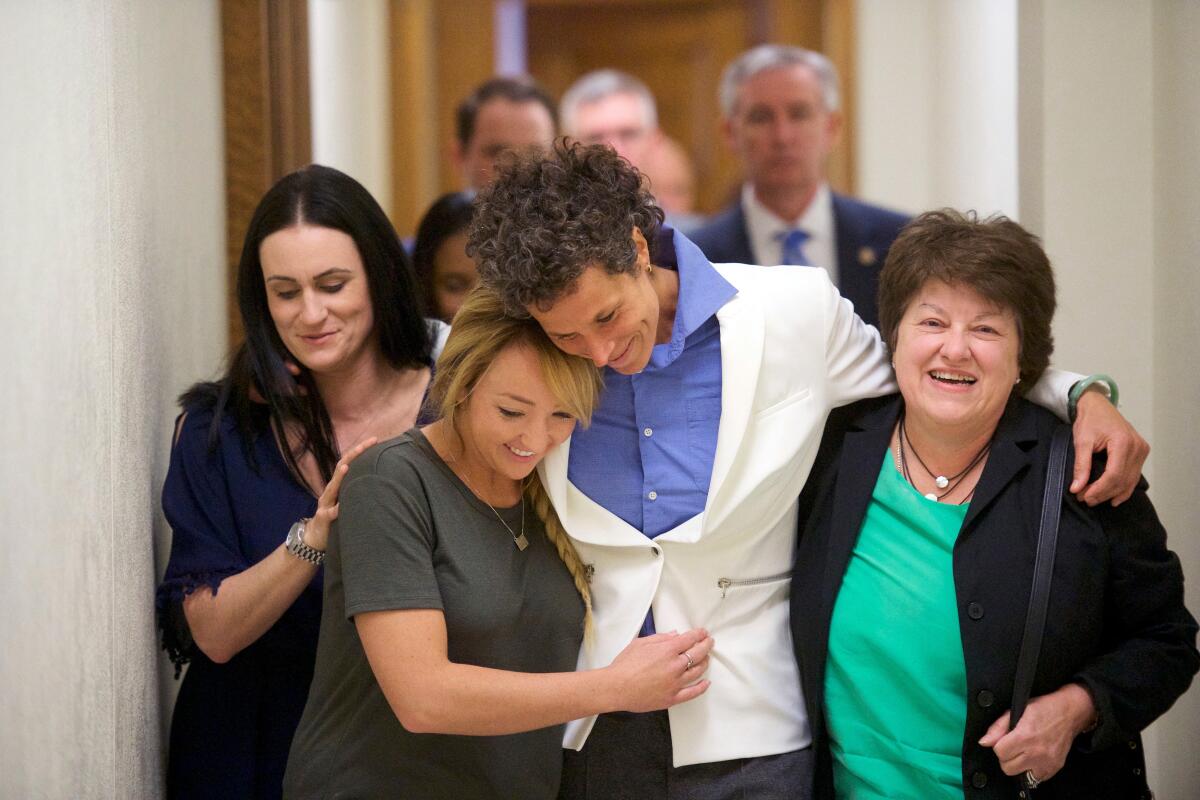
“You cannot truthfully speak about Black America in the later half of the 20th century and not talk about the influence of Bill Cosby,” says Martin. Even accuser Tirl said she wasn’t happy when Cosby was taken away in handcuffs: “[It was] a sad day in the history of Black culture.”
The series wraps up just as Cosby’s conviction is overturned on a technicality in June 2021, and he’s released from prison. It’s the only time we see Bell on camera. He looks exhausted, and wonders what the film is even about anymore. The answer, of course, is that there’s no easy answer.
Which is exactly why we need to talk about Cosby.
‘We Need to Talk About Cosby’
Where: Showtime
When: 10 p.m. Sunday
Rating: TV-MA (may be unsuitable for children under the age of 17)
More to Read
The complete guide to home viewing
Get Screen Gab for everything about the TV shows and streaming movies everyone’s talking about.
You may occasionally receive promotional content from the Los Angeles Times.


